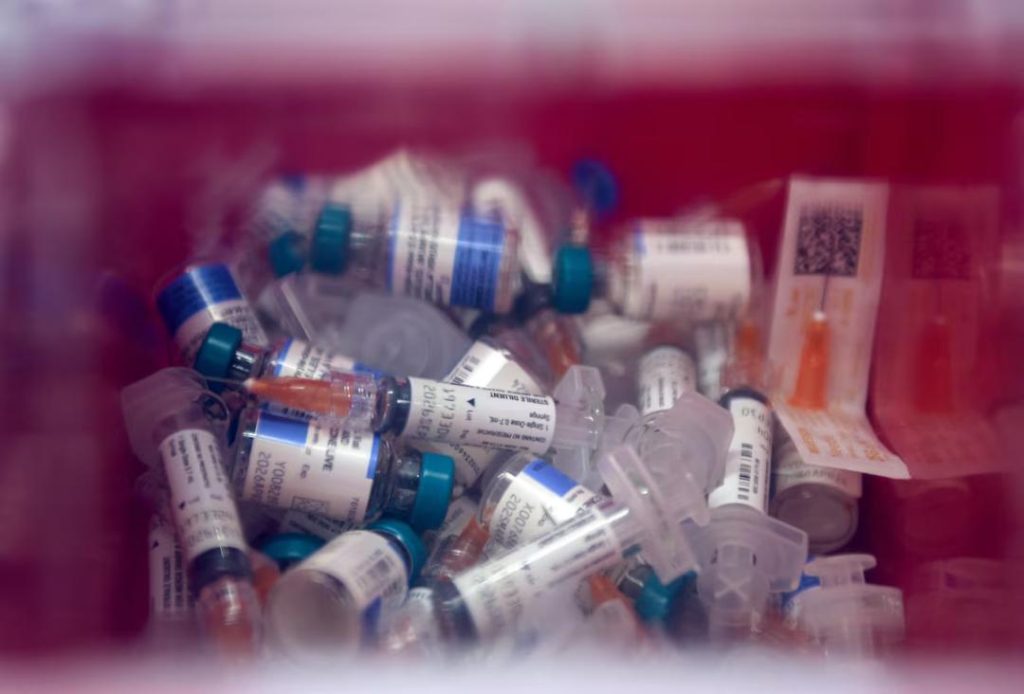
Trump Cuts May Hit Kids’ Free Vaccines Amid Measles Outbreak
The United States is in the midst of a measles outbreak, with over 600 people infected and three deaths reported. This alarming situation has led to a surge in demand for vaccines, but unfortunately, the Trump administration’s recent cuts may threaten the Vaccines for Children program, which provides free vaccines to kids. In this blog post, we’ll delve into the details of this concerning development and explore the potential consequences for public health.
The measles outbreak has spread across the country, with cases reported in 25 states. According to the Centers for Disease Control and Prevention (CDC), the majority of those infected have not been vaccinated. This has led to an increase in demand for measles, mumps, and rubella (MMR) vaccines, with many parents seeking to protect their children from the highly contagious disease.
However, just as the country is grappling with the outbreak, the Trump administration has implemented cuts that may harm the CDC’s Vaccines for Children program. In a recent move, the administration fired about 20 CDC staff members who were involved in promoting vaccines. Additionally, $11 billion in COVID-related grants were cancelled, which could have a significant impact on the program’s ability to provide free vaccines to kids.
The Vaccines for Children program, established in 1994, provides free vaccines to low-income children, including those without health insurance. The program is crucial in ensuring that all children have access to necessary vaccinations, regardless of their family’s financial situation. However, with the recent cuts, the program’s ability to provide these vital services may be compromised.
Experts warn that these cuts could have devastating consequences for public health. “The Vaccines for Children program is critical in providing access to vaccines for low-income children,” said Dr. Peter Hotez, a pediatrician and vaccine expert at Baylor College of Medicine. “If the program is cut, it could lead to a significant increase in vaccine-preventable diseases, including measles, mumps, and rubella.”
The measles outbreak is a stark reminder of the importance of vaccination. Measles is a highly contagious disease that can spread easily through the air when an infected person talks, coughs, or sneezes. Symptoms include fever, cough, and a rash, which can lead to serious complications, such as pneumonia and encephalitis.
The consequences of not vaccinating children are severe. According to the CDC, in 2019, there were 1,282 measles cases reported in the United States, the highest number since 1992. Measles outbreaks have also occurred in other countries, including Europe, Africa, and Asia.
The recent cuts by the Trump administration are particularly concerning, given the ongoing measles outbreak. “It’s ironic that the administration is cutting funding for vaccine programs when we need them more than ever,” said Dr. Hotez. “Vaccines are one of the most effective ways to prevent the spread of diseases, and cutting funding for vaccine programs could have devastating consequences for public health.”
In addition to the Vaccines for Children program, the Trump administration’s cuts may also impact other essential health programs. The CDC’s Immunization Program, which provides funding for vaccine research and development, could also be affected.
The measles outbreak is a wake-up call for the need for increased investment in vaccine research and development. “Vaccines are a critical tool in preventing the spread of diseases, and we need to continue to invest in their development and distribution,” said Dr. Hotez. “The recent cuts by the Trump administration are a step in the wrong direction and could have severe consequences for public health.”
In conclusion, the recent cuts by the Trump administration may threaten the Vaccines for Children program, which provides free vaccines to kids. The measles outbreak is a stark reminder of the importance of vaccination and the devastating consequences of not vaccinating children. As the country grapples with this ongoing outbreak, it is essential that we prioritize investment in vaccine research and development, as well as programs that provide access to vaccines for low-income children.



